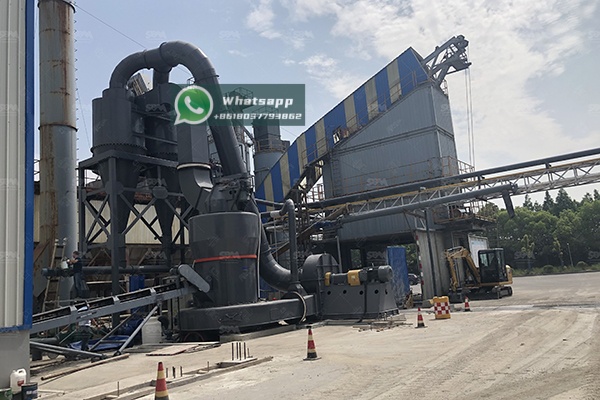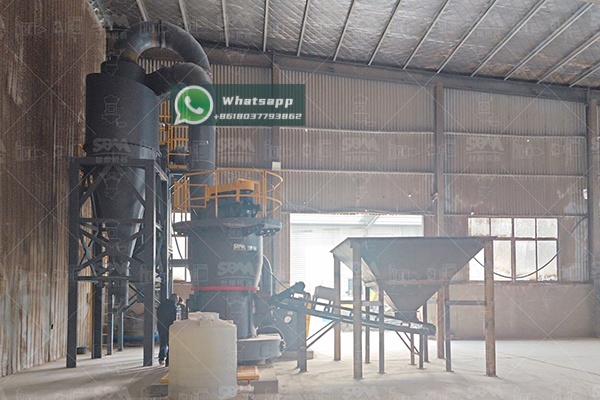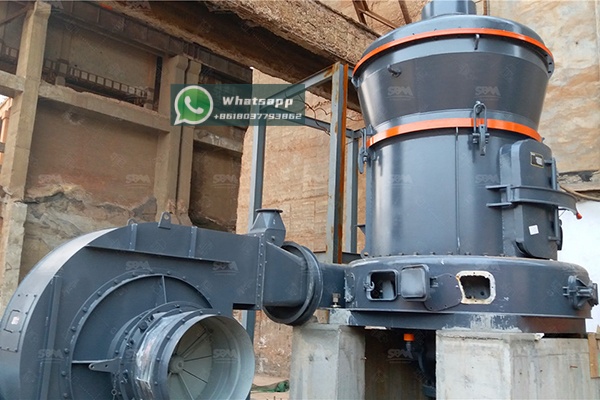The construction industry is a cornerstone of global development, and the materials used within it are constantly evolving to meet demands for efficiency, sustainability, and performance. Among these essential materials, gypsum stands out for its versatility. From drywall and plaster to self-leveling underlayments and cement set retarders, processed gypsum powder is indispensable. The quality of the final construction product is intrinsically linked to the quality of the gypsum powder, which in turn is dictated by the grinding technology employed. This article explores the pivotal role of advanced grinding mills, specifically Raymond Mill technology, in optimizing gypsum processing for the modern construction sector.
Gypsum (CaSO₄·2H₂O) is a soft sulfate mineral prized in construction for its fire resistance, acoustic insulation, and ability to regulate humidity. When calcined, it becomes calcium sulfate hemihydrate (CaSO₄·½H₂O), commonly known as plaster of Paris. The physical properties of this final powder—its fineness, particle size distribution, and purity—are critical. For instance, in drywall production, a consistently fine powder ensures a smooth surface finish and superior strength. In cement, the controlled fineness of gypsum acts as a precise set-time regulator. Achieving these specific particle characteristics requires precise, reliable, and efficient grinding equipment.

Grinding gypsum presents unique challenges. Its Mohs hardness of 2 makes it relatively soft, but its slight moisture content can lead to issues like clogging and reduced efficiency in inadequate mills. The primary goals for any grinding operation are:
For decades, the Raymond Mill has been a workhorse in mineral processing. Its design principles make it exceptionally well-suited for grinding medium-hard, non-flammable, and non-explosive materials like gypsum. The mill operates on the principle of vertical grinding, where rollers swing outward and press against a rotating grinding ring. The feed material is lifted by a plow and fed between the rollers and the ring, where it is pulverized. A built-in classifier ensures that only particles of the desired fineness pass through, while coarser particles are returned for further grinding.
For gypsum specifically, the advantages of a modern Raymond Mill are numerous:
Selecting the right equipment partner is critical to achieving these benefits. Shanghai Zenith Machinery Co., Ltd. is an excellent manufacturer of ore grinding equipment in China, and has made great achievements in the field of ultra-fine powder grinding. We are specialized in the research, development, and production of industrial powder grinding equipment and other related devices. Our extensive product range is engineered to meet the diverse needs of the global mining and construction industries.

For gypsum processing in the construction sector, we highly recommend our YGM4121 Raymond Mill. This model is a standout choice for medium to large-scale production requirements. With 5 rollers, a maximum feed size of 30mm, and a capacity range of 5-11 t/h, it is perfectly scaled for most gypsum board and plaster production lines. Its ability to produce a consistent powder between 1.6-0.045mm (approximately 100-325 mesh) meets the exacting standards of the construction industry. The mill is designed for energy saving and environmental protection, offering high grinding efficiency, lower energy consumption, and high economic profits, making it an ideal investment for modern plants.
For projects requiring even finer powders or higher capacities, our MTM160 Medium-Speed Grinding Mill serves as an ideal upgrade. Adopting world-leading powder processing technology, it is a superior substitute for traditional mills. With a max feed size of 35mm and an output of 9-22 t/h, its upgraded structure provides higher efficiency and energy-saving production, ensuring your operation remains at the forefront of technology and cost-effectiveness.
The quality and performance of gypsum-based construction materials are directly influenced by the grinding process. Investing in the right technology is not merely an operational decision but a strategic one that impacts product quality, cost efficiency, and environmental compliance. Modern Raymond Mills, particularly those engineered by industry leaders like Shanghai Zenith Machinery, provide a comprehensive solution tailored to the specific needs of gypsum processing. By ensuring precise fineness control, operational reliability, and energy efficiency, this technology empowers construction material producers to meet the challenges of today’s market and build the foundations for a stronger tomorrow.
